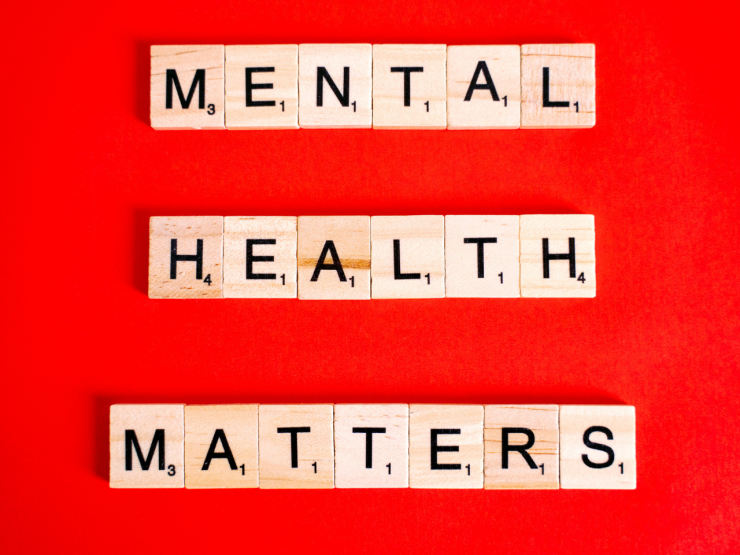Mental Health Awareness Week 2024: Cultivating Wellness
It's Mental Health Awareness Week 2024! In a world where mental well-being is increasingly recognised as an essential component of overall health, this week serves as a significant reminder to prioritise our mental wellness. As we navigate through the complexities of modern life, it's crucial to destigmatise conversations around mental health and promote understanding, support, and access to resources for everyone.
Join us as we delve into various aspects of mental health, shedding light on prevalent mental health issues, their causes, symptoms, diagnosis, treatment options, and available support resources.
Let's explore six prevalent mental health issues:
1. Depression
Depression remains one of the most common mental health disorders worldwide. In the UK alone, it affects around 1 in 6 people (16%) at some point in their lives. According to recent statistics, around 7.2% of adults experienced depression in 2020, with rates higher among women than men. It's crucial to recognise the signs early to ensure timely intervention and support.
Anxiety disorders, including conditions like generalised anxiety disorder (GAD), panic disorder, and social anxiety disorder, affect millions worldwide. In the UK, around 6.6% of people experienced an anxiety disorder in 2020.
Bipolar disorder is characterised by extreme mood swings, including emotional highs (mania or hypomania) and lows (depression). It affects approximately 1 in 100 people in the UK. Early diagnosis and management are essential to help individuals lead fulfilling lives despite the challenges posed by this condition.
Schizophrenia is a chronic mental health disorder characterised by disturbances in thoughts, emotions, and behaviour. It affects about 1 in 100 people globally. While it often manifests in early adulthood, it can occur at any age, significantly impacting an individual's ability to function in daily life without proper support and treatment.
Eating disorders, such as anorexia nervosa, bulimia nervosa, and binge-eating disorder, are serious mental illnesses with potentially life-threatening consequences. In the UK, approximately 1.25 million people are estimated to have an eating disorder. Early intervention and comprehensive treatment approaches are essential for recovery.
Substance abuse disorders, including addiction to alcohol, drugs, or other substances, have a profound impact on mental and physical health. In the UK, around 9.4% of adults displayed symptoms of alcohol dependence, and approximately 3.0% displayed symptoms of drug dependence in 2020.
To learn more about other Mental health conditions click here
Causes and Risk Factors
Various factors contribute to the development of mental health issues, including genetic predisposition, environmental stressors, traumatic experiences, substance abuse, and neurochemical imbalances in the brain. Furthermore, socioeconomic factors such as poverty, unemployment, discrimination, and inadequate access to mental health services can exacerbate existing vulnerabilities.
Symptoms and Signs to Look Out For
Recognising the signs and symptoms of mental health disorders is crucial for early intervention and support. Common symptoms include:
· Persistent sadness.
· Anxiety.
· mood swings.
· changes in sleep or appetite.
· Social withdrawal.
· Difficulty concentrating.
· Substance abuse.
· Thoughts of self-harm or suicide.
It's essential to encourage open dialogue and offer non-judgmental support to those experiencing mental health challenges. So, if you or someone you know is struggling, reach out and engage in meaningful conversations.
Diagnosis and Assessments
Diagnosing mental health disorders involves a thorough assessment by trained mental health professionals, including psychiatrists, psychologists, or licensed therapists. This may include a comprehensive evaluation of symptoms, medical history, and psychosocial factors, along with standardised diagnostic criteria outlined in diagnostic manuals like the ICD-10.
Treatments and Coping Strategies
Treatment approaches for mental health disorders include a range of interventions, including but not limited to:
· Psychotherapy (cognitive-behavioural therapy & dialectical behaviour therapy).
· Medication management.
· Lifestyle modifications.
· Support groups.
By developing healthy coping strategies, such as mindfulness practices, exercise, relaxation techniques, and maintaining social connections, you may also enhance emotional resilience.
Accessing appropriate support and resources is essential for individuals navigating mental health challenges. This may include:
· Community mental health services
Myths and Misconceptions
Despite increased awareness, misconceptions surrounding mental health persist, contributing to stigma and barriers to seeking help. Common myths include the notion that mental illness is a sign of weakness, that individuals can simply "snap out of it," or that only certain demographics are susceptible to mental health issues. Challenging these misconceptions through education and advocacy is vital for fostering a supportive and inclusive society.
Conclusion
This Mental Health Awareness Week 2024, let's reaffirm our commitment to prioritising mental well-being, fostering understanding, and promoting access to comprehensive support services for all. By engaging in open dialogue, challenging stigma, and embracing a holistic approach to mental health, we can collectively nurture resilient minds and build a more compassionate and supportive community.
Remember, your mental well-being matters—let's journey towards a healthier, more inclusive future together.
Sources*
https://www.nhs.uk/nhs-services/mental-health-services/
https://www.nhs.uk/mental-health/conditions/
https://www.mayoclinic.org/diseases-conditions/mental-illness/symptoms-causes/syc-20374968
https://www.mentalhealth.org.uk/



